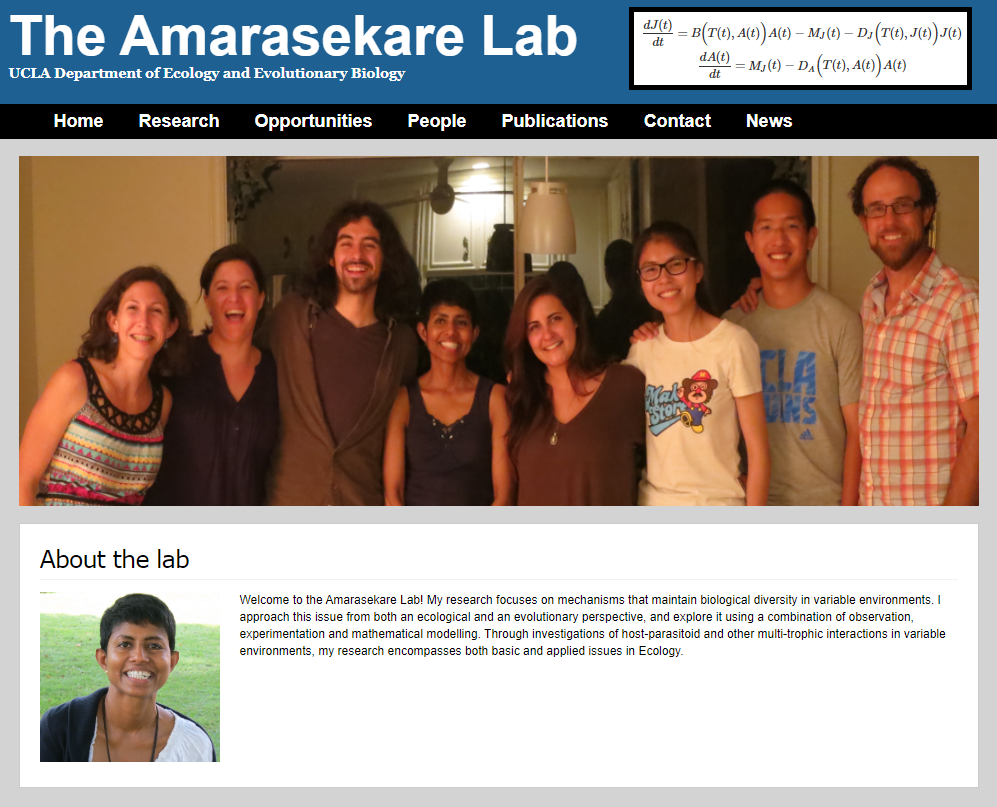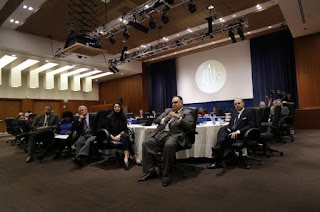The LA Times very recently carried a lengthy article about UC's budgetary response to the added labor costs of the student-worker strike settlement. Excerpts from the article:
Just weeks after the University of California and academic workers heralded historic wage gains in new labor contracts, the question of how to pay for them is roiling campuses as they scramble to identify money, consider cutbacks in graduate student admissions and fear deficits.
The full financial costs of the labor settlements between UC and 48,000 academic workers who help power the system’s vaunted teaching and research engine are still being tallied. But preliminary estimates have dealt a “financial shock to the system,” said Rosemarie Rae, UC Berkeley chief financial officer. The UC Office of the President estimates the increased costs for salary, benefits and tuition systemwide will be between $500 million and $570 million over the life of the contracts...
Overall, the costs take in pay increases of 20% to 80% depending on the workers — teaching assistants, tutors, researchers and postdoctoral scholars — and are among the highest ever granted to such university employees in the nation. “It’s a huge number,” UC Board of Regents Chair Rich Leib said of the costs. “I think it was a good agreement and I’m happy with that. But there are ramifications..."
Funding the raises could touch off far-reaching changes to UC’s traditional model of graduate student education, including potential reductions in teaching assistants and researchers. Decreasing their numbers could have a cascading effect by narrowing the pipeline for future faculty and industry innovators, affecting UC research output and diluting the learning experience of undergraduates with potentially larger class sizes and less personalized instruction...
So far, UC has not sent campuses any systemwide game plan to handle the raises — fueling frustration among many faculty that they’ll be left to figure out solutions using their own funds to pay for labor negotiations they say they had little if any opportunity to help shape...
Whether the state might come up with more money is uncertain, since the governor has already signaled caution and cutbacks for 2023-24 in his January budget message. Moreover, there is the multiyear "compact" which UC has already praised the governor for continuing (even though - as we have pointed out in past postings - total nominal dollars slated for UC are being reduced). UC has said it will be seeking more from the legislature for infrastructure. But infrastructure funding has nothing to do with ongoing labor costs, although in the long run, acquisition of more affordable student housing might help.
One reaction has been an open letter from many faculty at UCLA addressed to UCOP:
We, the undersigned members of the UCLA community, stand firmly against any move on the part of the UC Office of the President (UCOP) and UCLA administration to impose the costs of UAW-ratified contracts on the already strained finances of departments, research centers, and faculty. The result would be a diminished quality of research and education for undergraduates and graduates alike. We urge UCLA leadership, UCOP, the California legislature, Governor Newsom, and federal granting agencies to recommit to fully funding public higher education.
On December 23rd, 2022, UAW members across the UC system ratified contracts with much-needed and significantly increased pay and benefits, including childcare subsidies, increased access to healthcare, family leave, and transit benefits. These overdue contracts improve the lives of UAW members—our students and postdocs—who have long endured inadequate pay and benefits. Despite numerous warnings by public education advocates, the UC system has enjoyed these lowered labor costs for decades, and is only now facing the question of how to pay for these much-needed improvements.
Early indications across the UCLA campus suggest the university will seek to impose these costs on departments, research centers, and faculty PIs, leading to a reduction of graduate student appointments; an increase in the already high number of undergraduates per discussion section, and a correspondingly negative impact on course curriculum, undergraduate assignments, and grading; the weakening of currently funded research; and ultimately fewer funded research opportunities for graduate students. TA and GSR appointments are central components of funding for graduate students, and both are central inputs into the research and educational work of the institution.
Increasing pay will address the long-term issue of making the UC more competitive with other universities in graduate student recruitment, but without additional funding to departments and units it will also significantly decrease the number of students that we can recruit and support. Given these anticipated effects, the costs of the new contracts signed by UCOP cannot be borne by departments, research centers and faculty PIs. Indeed, by pushing the costs downwards in this way, the university is both effectively canceling the gains of this historic strike and negatively impacting the research and education mission of the UC.
We refuse this divide-and-conquer tactic and stand alongside our undergraduate and graduate students, department chairs, and deans, in insisting on a funding model that advances the UC system’s fundamental mission of education and research. We refuse the imposition of unilateral, punitive austerity as the university’s response to a strike by academic workers against poverty wages.
We know the UC system has funds at its disposal and can work to raise additional public funds at both the state and federal levels to cover the costs of the new UAW contracts. Mere days after the strike ended, the UC system invested $4 billion of endowment money with private equity giant Blackstone Inc.& Instead, the UC should invest in the research and education mission of the university. UC leadership must not only reallocate investment funds and administrative budgets but also robustly appeal to state legislators and federal grant agencies for larger budget appropriation. At UCLA, we expect to see a budget and planning process that allocates funds to the central missions of teaching and research and underwrites the short-term and long-term costs of the improved contract. The strike, which has been the largest academic labor action in US history, has highlighted the urgent need to reprioritize educational goals above financial goals.
We intend to take our concerns to the Academic Senate, the Council of UC Faculty Associations, the UC Regents, the California Governor and legislature, and the media. We do so to advocate for public education and to stand with our undergraduate and graduate students, and junior colleagues as we all work hard to carry out that mission.
===
*Note: It's unclear from what funds the Blackstone investment comes. Yours truly was told that a large portion came from the pension plan; pension dollars cannot be used to pay current wages. There are other issues related to the Blackstone matter which we have discussed in prior posts.
===
Finally, it might be noted that the legislature has been heavily focused on undergraduates due to pressures from parents anxious that their kids get into the UC of their choice. Graduate students and research generally have been of lesser concern as a political matter. This situation is a paradox since the reason UC campuses are prestigious - and that parents want their kids to get into UC - stems from the research and graduate education side. That reality was recognized by the old Master Plan which created a division of labor between the three segments, with UC focused on research and graduate education. If you just want to "process" lots of undergraduates at low cost, community colleges and CSU should be your choice. But that fact is not well understood by parents (voters) and legislators respond to constituents.
Getting politicians heavily involved in the operations of UC has risks. For example, the state auditor has not been particularly friendly to UC. There could be hard looks at the micro level about faculty workloads, smaller departments, and other matters. We already see this trend with the governor and his compact, which has all kinds of detailed goals set for UC embedded in the budget. So, we have one of those be-careful-what-you-wish-for situations potentially developing.
It is also important to recognize - particularly at UC campuses with med schools - the differences between faculty in different areas. Most of the letter signers - not all! - come from north campus departments. The big buck research grants that pay for student researchers, post-docs, etc., come from south campus. Research grants, with limited exceptions, don't come from the state, but are competitively obtained from federal government agencies and other private sources.


























